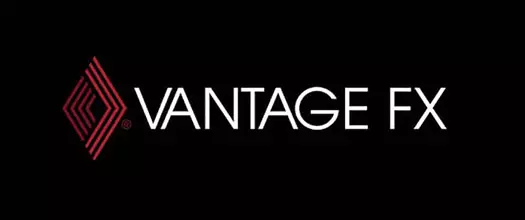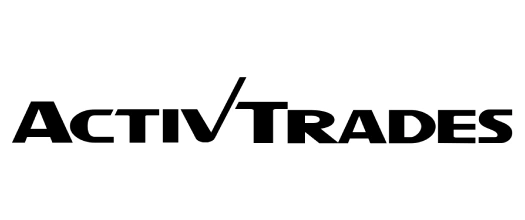- Jump to:
- Main Features
- The Financial Conduct Authority
- FCA’s Responsibilities
- Guidelines FCA Brokers Need to Comply With
- Requirements for Professional Traders
- Customer Protection
The Financial Conduct Authority (FCA) is the main regulatory body that oversees forex trading in the UK, enforcing strict rules for consumer protection and helping build confidence in the financial markets. Choosing an FCA-licensed forex broker comes with the added benefits of greater price transparency, integrity and enhanced security. The FCA’s level of oversight fosters a more secure and trustworthy trading environment, which is essential for your long-term success as a forex trader.
 Plus500 USThis content applies only to Plus500 US and clients from the United States. Trading futures involves the risk of loss.
Plus500 USThis content applies only to Plus500 US and clients from the United States. Trading futures involves the risk of loss. eToro61% of retail investor accounts lose money
eToro61% of retail investor accounts lose money Eightcap59.57% of retail investor accounts lose money when trading CFDs with this provider.
Eightcap59.57% of retail investor accounts lose money when trading CFDs with this provider. Pepperstone75.5% of retail investor accounts lose money
Pepperstone75.5% of retail investor accounts lose money AxiThe vast majority of retail client accounts lose money
AxiThe vast majority of retail client accounts lose money Vantage
Vantage IG67% of retail client accounts lose money when trading CFDs with this investment provider.
IG67% of retail client accounts lose money when trading CFDs with this investment provider. Admirals73% of retail investor accounts lose money
Admirals73% of retail investor accounts lose money Swissquote61% of retail investor accounts lose money
Swissquote61% of retail investor accounts lose money ActivTrades71% of retail investor accounts lose money
ActivTrades71% of retail investor accounts lose money
Our team has thoroughly evaluated all brokers listed below using TradingPedia’s exclusive methodology.
Main features of the best FCA forex brokers
- Brand
- Trading platforms
- Minimum deposit
- Regulations
- Trading instruments
- Spreads
- Leverage for Forex CFDs
- Leverage for Crypto CFDs
- Leverage for Indices CFDs
- Deposit methods
- Withdrawal Methods
- Commission per Lot
- Contact details
The Financial Conduct Authority
Founded in early April 2013, the Financial Conduct Authority (FCA) is the financial regulatory body overseeing nearly all financial services firms and markets in the UK. It is based in London, with offices in Leeds, Edinburgh, Belfast and Cardiff. The FCA’s predecessor, the Financial Services Authority (FSA), regulated the sector from 2001 to 2013.
In addition to granting licences and supporting a robust financial system, the regulatory authority is committed to securing consumer protection, enhancing market integrity and fostering competition.
British traders can enjoy peace of mind when they create accounts with regulated UK forex brokers, as these comply with the highest standards of consumer protection.
FCA’s Financial Services Register provides access to the full list of financial firms and the activities they have permission to perform. Brokers can be searched by name, part of the name or reference number. The FCA also provides warning notes about clone firms and unregulated brokers to ensure the best consumer protection. Additionally, traders can consult the register to check whether the FCA has taken any disciplinary action against a given forex broker and, if so, why.
UK traders are not held legally responsible if they have been trading with brokers not regulated by the FCA. However, if they do so, they will lose the right to be protected by an official regulatory body should they become victims of fraudulent activities. Traders are advised to check the regulatory status of the broker they wish to register with to ensure they have access to all consumer protection mechanisms, should any problems arise.
FCA’s responsibilities
The FCA is tasked with regulating the conduct of nearly 42,000 businesses operating in the UK financial sector. The organisation makes rules and issues guidance and standards to which financial companies must adhere. The regulator is empowered to authorise and register financial companies and individuals.
To ensure a fair and transparent environment for consumers, the authority constantly monitors the integrity, competitiveness and fairness of financial markets, with forex regulation also falling under the FCA’s remit. Besides consumers, the regulator works to ensure the well-being of local businesses and the overall growth of the UK economy.
The organisation has grouped its main objectives into three categories:
- Protecting consumers from bad conduct
- Protecting the integrity of the UK financial system
- Facilitating competition to serve the interests of consumers in the best possible way
Since 2023, the financial regulator has adopted a secondary objective to promote international competitiveness and facilitate the growth of the UK economy in the medium to long term. The FCA is committed to ensuring compliance with international standards. Further information on the main roles and objectives of the regulator can be found in the Financial Services and Markets Act 2000 (FSMA).
The FCA is accountable to HM Treasury and Parliament but is funded entirely by fees charged to the firms it regulates. Its governance is structured around a Board, which sets the strategic direction and oversees the organisation’s long-term success. The Board is composed of executive and non-executive members, including a chair, a chief executive and the Bank of England’s deputy governor for prudential regulation.
The regulatory body is currently chaired by Mr Ashley Alder, while Mr Nikhil Rathi was appointed chief executive by the Treasury. Each year, an annual report is compiled detailing the progress made towards the statutory objectives. It is delivered to the Treasury, which then resubmits it to Parliament. Parliament’s Treasury Select Committee (TSC) monitors and tracks the work of the FCA through hearings held three times per year. Additionally, the regulator responds to queries from MPs and peers.
In cases of regulatory failure, the FCA is obliged to conduct an investigation and report the findings to the Treasury.
Guidelines FCA brokers need to comply with
The FCA is among the most reputable regulatory bodies in the financial services industry and is known for its stringent laws and regulations, which ensure fairness, transparency and security. Each forex broker operating in the UK must be authorised by the FCA. Regulated companies must provide details of their licence and registration number on their website homepage or under a dedicated regulation section.
There are three main categories of FCA forex licences: dealer licences, intermediary licences and restricted broker licences. To become an FCA-regulated broker, companies must fulfil minimum capital requirements to ensure they can meet their financial obligations.
- Dealer licences refer to the so-called market makers, with a minimum capital requirement of £750,000. This licence grants applicants the right to operate a B-Book and act as the client’s counterparty. The minimum capital requirement for an intermediary licence is £150,000. Straight Through Processing (STP) brokers and brokers offering the A-Book model fall into this category. These two types of licences empower forex brokers to offer contracts for difference (CFDs).
- Restricted broker licences come with the lowest minimum capital requirement of £75,000. These brokerage companies are allowed to market and sell financial products but are not permitted to hold customer funds.
Licence holders are obliged to submit monthly financial statements to clients as well as position records. They must maintain physical offices in the UK and employ qualified professionals. Companies must provide a proper business plan, Anti-Money Laundering (AML) manuals and Know Your Customer (KYC) information on directors, owners and officials.
- Client fund segregation and the Financial Services Compensation Scheme are other important guidelines that regulated FCA forex brokers must follow.
- Last but not least, FCA-regulated forex brokers must comply with specific leverage limitations on the financial instruments they provide. The maximum allowable leverage for major forex pairs is 1:30. The leverage for other currency pairs and gold is 1:20. Indices and other commodities have a cap of 1:10, while stock positions can be leveraged at ratios of up to 1:5. Cryptocurrency CFDs and other crypto derivatives are currently unavailable to retail clients due to FCA restrictions.
Requirements for professional traders
UK-licensed forex brokers require traders to meet specific criteria to qualify for professional status. Typically, traders must have a financial portfolio exceeding €500,000, including cash and liquid financial instruments. They also need to have executed at least 40 transactions of significant size within the last 12 months, averaging 10 trades per quarter. Lastly, traders should have at least one year of relevant professional experience in the financial sector, working in roles that require sufficient knowledge of the products they intend to trade.
Traders who qualify to become professionals benefit from lower margin requirements. Based on traders’ monthly trading volume, some brokers offer monthly cash rebates. A dedicated account manager is another advantage that professional traders have over retail clients.
Customer protection
UK traders benefit from one of the highest levels of investor protection globally. There are many customer protection mechanisms in place, ensuring traders deal in a fair and transparent environment.
First of all, licence-holders must convey the risk associated with trading forex and other financial instruments in a clear, visible and understandable manner. The compulsory risk disclosures must be present not only on their websites but also on all marketing materials. They must display the percentage of retail investor accounts losing money when trading. Moreover, FCA-regulated forex brokers must keep all customer deposits in segregated bank accounts, separate from their company funds. They are not allowed to use these funds.
Additionally, all FCA-authorised forex brokers are obliged to participate in the country’s Financial Services Compensation Scheme (FSCS). If brokers cannot fulfil their financial obligations, customers are eligible for reimbursement of up to £85,000 per claim.
Dispute resolution process in the UK
While the FCA itself does not directly resolve individual disputes, it enforces strict requirements on brokers to maintain effective complaint-handling procedures. Traders have access to internal complaint mechanisms within the broker, an independent external arbitration service via the Financial Ombudsman Service (FOS) and, if necessary, the option to pursue legal action through the courts.
- Initial complaint to the broker: If a trader is unhappy with a financial product or service, the first step is to contact the broker directly. The firm is required to have an internal complaints process to handle disputes fairly, consistently and promptly. Traders should explain the issue clearly and keep a record of their communications.
- Escalation to the Financial Ombudsman Service (FOS): If the broker’s response is unsatisfactory or it fails to respond in due time, traders can escalate their complaint to the Financial Ombudsman Service. The FOS is an independent and free dispute resolution service that reviews complaints impartially and can issue a final binding decision. If the FOS rules in the trader’s favour and the trader agrees, the firm must comply with the decision, which may include compensation.
- Taking court action: If a trader does not accept the Ombudsman’s decision or chooses not to use the FOS, the next option is to take the matter to court, typically starting in county courts or the High Court, depending on the case.
- The FCA’s role in dispute resolution: The FCA monitors complaint data from firms to identify patterns of harm and to ensure they address complaints properly. The watchdog can take enforcement action against firms that fail to comply with regulatory standards or mistreat clients.
- Time limits for resolving disputes: Complaints usually must be made within six years of the issue or three years from when the trader became aware of it. After receiving the firm’s final response, traders generally have six months to take the complaint to the Financial Ombudsman Service.
This structured system provides UK traders with multiple layers of protection and accessible pathways to resolve disputes, ensuring fairness and support throughout the complaint process when dealing with FCA-regulated brokers.












